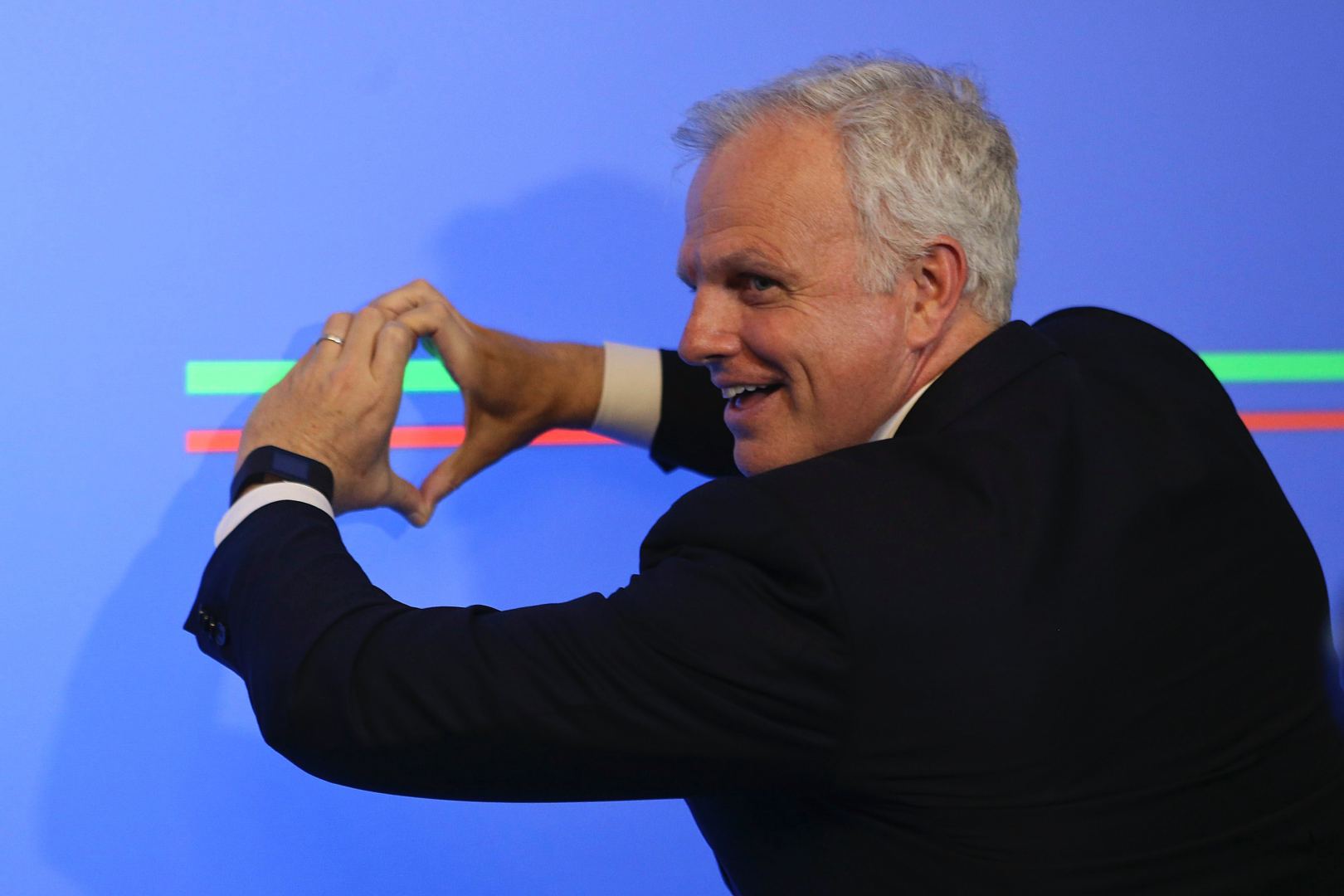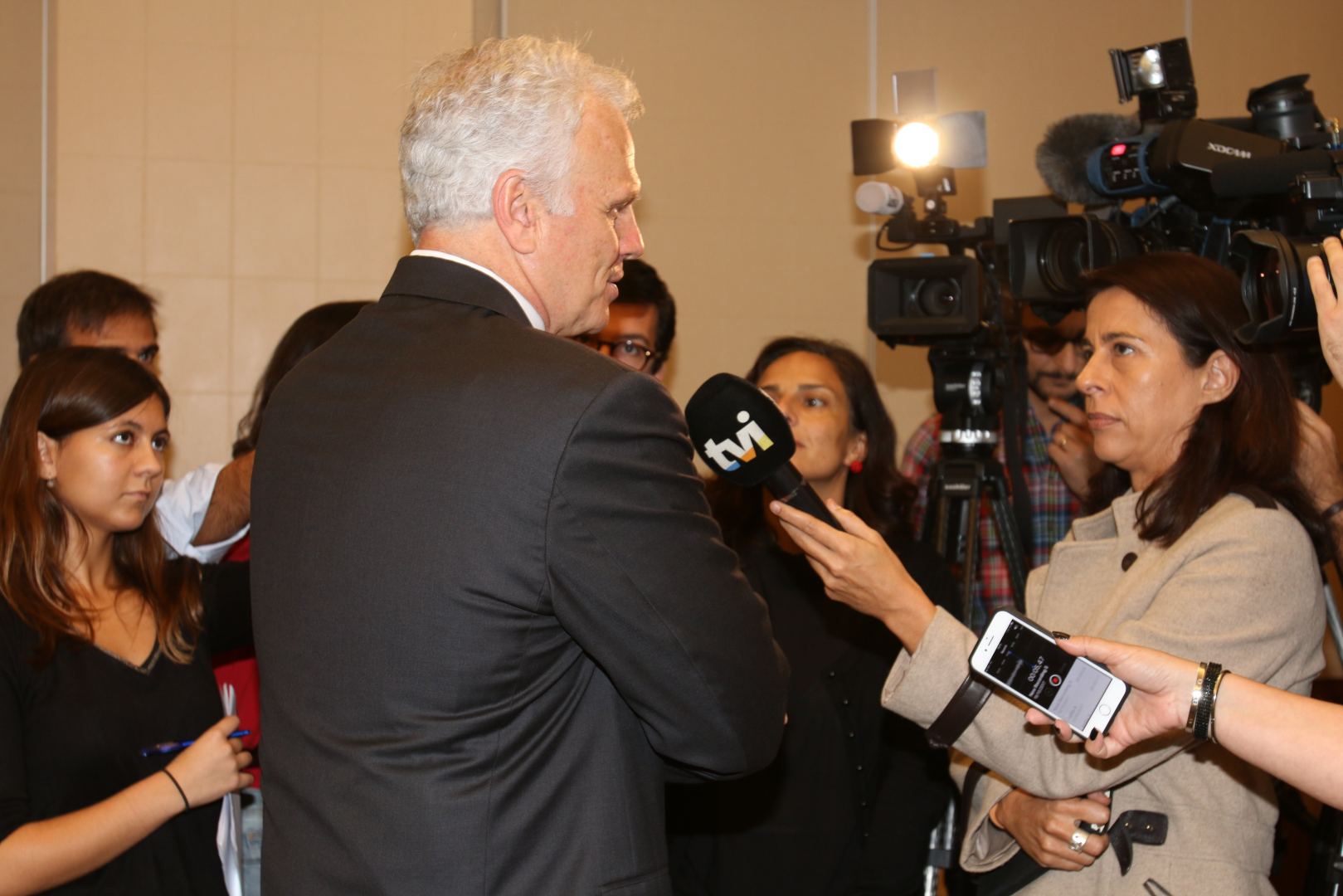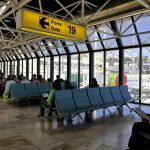Turning TAP around
Since becoming the co-owner of Portugal’s national airline TAP Air Portugal in 2015, airline mogul David Neeleman has one objective: to turn the fortunes of the airline around from a €90 million operational loss for 2017 and a €47 million loss for the first half of 2018 to a net profit within four years. With revenues up 18% this year, totalling €2.9Bn, it seems he is flying in the right direction.
The founder or co-founder of four airlines – JetBlue, Azul, Morris Air and WestJet – talks to Essential Business about his strategy for TAP and plans to launch a new airline, a US low-cost carrier.
TAP – from loss to profit?
Despite enormous challenges, the largest being reducing TAP’s accumulated €600 million debt, TAP co-owner David Neeleman is off to a good start.
Ticket sales soared 18% in the first half of 2018 to €1.5 billion thanks to growth in the “Portuguese, Brazilian and US markets”, which together have grown around 15% and represent 56% of total sales.
Last year was a better year too, with the holding TAP SPGS registering a profit of €21.2 million – “the best result over the past 10 years” within the context of accumulated losses over many years and meaning that the airline is finally turning around.
The company has also dampened down industrial disputes by signing phased incremental salary agreements of up to 15% over five years with the “majority of the professional classes” like pilots, which should avoid strikes and stoppages for that period.
A strategy for TAP
The strategy is to multiply TAP’s results “seven times” within three or four years. “It’s perfectly realistic,” says David Neeleman. “Other well-run companies are already doing it. With the new aircraft and routes that we have introduced or announced, it’s achievable.
“The problem for TAP was that because of state-aid rules in Europe, the Portuguese government couldn’t really invest in the company, so the product has deteriorated despite passionate people trying to offer the best product possible,” the entrepreneur explains.
“You also have a country that was basically undiscovered and has now become one of the hottest places in Europe to visit. Geographically, Portugal is well-positioned as a hub. Its position in Europe means we can transport people to Africa and America, so we had to get some new planes over here and give our staff, who provide a great service, better tools to work with.”
Access to the United States
David Neeleman says access is really important. “There were certain days of the week when you couldn’t fly here non-stop from the United States off season. United was doing three days a week, TAP was doing four days a week, American Airlines a couple of flights a week from Philadelphia and that was all.”
TAP remedied this by putting in daily services to Boston, New York-JFK and New York-Newark. “People started coming to Portugal and telling their friends what a great place it was and that caught on. We added San Francisco, Chicago, Washington and Montreal. I think North America is of really critical importance for TAP. It’s a great way for people to visit the country and, with our stop-over programme, people can stay for two or three days on their way to the rest of Europe. Around 100,000 people have had the chance to see what a great country it is, so it’s all about access.”
David Neeleman admits that TAP was “too dependent on Brazil”, which, while being “an important part of our business”, needed to be balanced with North America, not least because they have two different seasons – when one has winter, the other has summer – “so it works great together”, especially with the Brazilian economic downturn.
TAP also became more aggressive with low-fare competitors. “Every time Ryanair and easyJet introduced new services, we were just rolling over and giving up. It was a rout. So we decided to compete and have really turned around our European operation. The company was always making money in Angola and Brazil but not in Europe, and we said ‘no way’. So we decided to cut our losses significantly in Europe, cut fares and become more competitive. Passengers are now seeing us as an alternative to the low-cost airlines,” he explains.

Frustrations with the government and ANA
Ever since David Neeleman gained a 50% share in TAP Air Portugal, the airline mogul has had big ambitions for the company. But he says these are being stifled by a lack of willingness on the part of the Portuguese government and the airport management company that owns Portugal’s airports, the French Vinci Group, to agree to build a state-of-the-art international airport that not only reflects the country’s strategic importance as a gateway to Europe and hub to Africa between the United States, Brazil and Angola, but also the phenomenal influx of visitors, which in 2017 reached a staggering 22 million, with 4.5 million passing through Lisbon’s existing but inadequate Humberto Delgado international airport.
In the first quarter of 2018, TAP had to cancel 557 flights, according to British aviation statistics company OAG, with 75 cancellations in January, 117 in February and 356 in March. In the latter month, 1.6% of the total of 10,875 flights were cancelled.
After the 4th Portugal Tourism Summit on September 27, the airline entrepreneur lost no time in blasting both the government and ANA for dragging their heels over a solution to the congestion, delayed flights and long queues at the existing facilities.
“The unfortunate part is that we don’t have a new state-of-the-art airport. The good thing is that we do have an air base, just across the river at Montijo, and it’s not two hours away. It’s as close to downtown Lisbon as possible; you just have to cross the bridge and you’re there,” he says.
Blaming ANA
Regarding ANA, the Portuguese airports authority, he says that Lisbon airport is netting it the “highest margins of any airport in the world, with huge profits”, yet it is prepared to have the airport “with the most delays in Europe”.
“They (ANA) make the most money and have the lousiest airport in Europe,” he says, adding that although a fit-for-purpose airport had not been built by past administrations, “we are blessed that we do have a site just across the River Tagus, at an air force base in Montijo, which can be used for an efficient and not-too-costly interim solution until a new international airport is built”.
“ANA is dragging its feet and is partially as much to blame as the government. The airport at Portela is one of the most profitable airports in the world because of the growth that we’ve put in here. Its revenues have increased 20 times since privatisation, yet it hasn’t used that money to improve the infrastructure,” he says.
“They don’t even have high-speed taxiways. All they have done is take away one of the two runways and haven’t replaced it with high-speed taxiways. We’re talking to the government because more pressure needs to be put on ANA.”
Neeleman explains it has to be a three-way agreement between the air force, ANA and the government. “I asked my board – if we woke up tomorrow and the airport was gone for whatever reason, how quickly could we get the other airport at Montijo up and running? I can tell you that, in a matter of months, we would get that place fully operational,” he insists.
Portela closed for business?
As to the existing airport, Neelemam says: “I think we have to pretend that Portela doesn’t exist, because it really doesn’t for new services and we can’t just stop growing. We’re adding new destinations but, for every new destination, we’re having to pull flights from somewhere else.”
At an American Club of Lisbon lunch at the Grémio Literário in Lisbon, David Neeleman said it was “shocking” that a country that depends “almost solely on air transportation” would not have a better airport than Lisbon’s Humberto Delgado.
“You would think there would be this world-class airport that would have customs lanes as far as the eye could see, happy customs staff to greet visitors and make sure they don’t have to wait two hours in line as we have experienced at times, and an airport that should be the whole focus of the country,” he slammed.
The Brazilian-American airline entrepreneur said that next year TAP planned to open non-stop services to Chicago, San Francisco and Washington, but said it would mean scaling back other flights.
“In order to do that, we will have to pull three flights from somewhere else. Can you believe that a country that is as isolated and as far away from everything (as Portugal) has an airport that is closed for business?” he complained.
At the 3rd Portugal Tourism Summit, the previous year, at which he was a keynote speaker, Neeleman had said that he had done “many important things in life but investing in TAP was the most important because Portugal needs TAP and TAP needs Portugal”.

“When I took over the company, TAP faced various challenges including Portugal’s economic readjustment and a recovery that was only just beginning to show, the devaluation of the Brazilian Real, the strong contraction of the economy in Africa, particularly Angola which was and is one of TAP’s main routes, and strong competition from the low-cost airlines in Europe.
“What we didn’t want to do was to lower standards and turn TAP into another low-cost airline, but instead went for new charges based on customer needs. We began to renew our fleet and introduced our stop-over programme, which has proved hugely popular and has been one of the drivers behind Portugal’s current tourism boom,” he stresses.
“TAP’s importance for national tourism is total. Eighty per cent of visitors to Portugal arrive by plane and TAP brings half of that 80%. You just cannot overstate the importance of this airline to tourism in Portugal.”
At this year’s Portugal Tourism Summit, TAP CEO Antonoaldo Neves said that the airline had to factor in €100 million in costs from delays and insisted that the money lost from those delays “could have been spent on reducing ticket prices”.
He also said that the nuts and bolts of the airport expansion plan at Montijo needed to be known, since airline companies needed to plan their operations based on concrete data such as parking spaces.
The airline executive said that TAP was growing 13% and should grow 14% next year with “a lot of sacrifice” and “cost” with legally due compensation payouts to passengers whose flights had been delayed owing to difficulties at Lisbon airport.
Limits to expansion
While the plan is to grow TAP by 10%-15% per year, David Neeleman stresses that there are limits.
“What we’ve been doing is use larger, newer aircraft, replacing the Airbus A330-200 with A330-900 as well as the old A319 with the new A321,” he explains.
But the problem does not just depend on upping aircraft capacity but also creating new airports at a time when Lisbon airport has been beating all records in terms of flight movements and passenger numbers.
Africa
TAP serves eight cities in Africa, including Luanda (Angola), Praia (Cape Verde), Marrakesh and Casablanca (Morocco). “The Portuguese-speaking countries are easier for us than the French-speaking ones in that part of the world, so we’ll continue to do business there and look at any opportunities that come our way,” says Neeleman.
Moxy?
Sounds like ‘doxy’ but David Neeleman admits that the name for his new low-cost US airline is “provisional” as even he is not sure about how it sounds, particularly since the Marriot Group has hotels with the same name and wouldn’t be happy with the airline using it.
“It’s a US-based airline but the aircraft, the Airbus A220 are unusual as they can have a range of up to 10 hours, so we could actually fly those planes to Lisbon and add 10 medium- to small-size cities in the US from Lisbon if we had the capacity. We could also fly from Florida to Brazil, mainland US to Hawaii, and so we are evaluating 800 different possible routes. From our analysis, there’s plenty of room in the market.”










